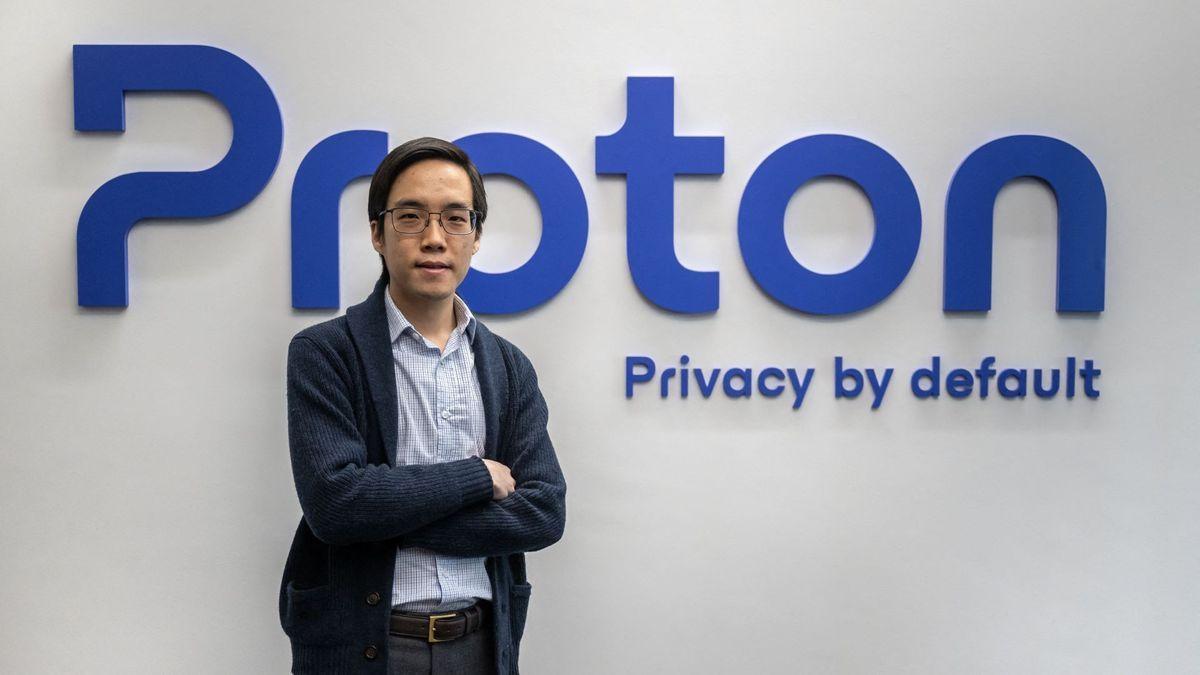Proton Relocates Infrastructure Amid Swiss Surveillance Law Concerns
2 Sources
2 Sources
[1]
Proton refuses to be 'held hostage' by controversial Swiss surveillance law
Most of its physical infrastructure will be moved out of Switzerland, starting with Lumo AI Proton has said it is moving most of its physical infrastructure out of Switzerland due to concerns surrounding the country's proposed surveillance law. Its new Lumo AI assistant is the first product to move, as it looks to invest in, and embrace, the wider European continent. This would impact all of Proton's privacy-focused products, including Proton VPN - one of the best VPNs we've tested. Back in May, Proton CEO Andy Yen initially hinted that the provider could leave Switzerland if the surveillance law was passed. Traditionally, Swiss privacy laws have been very strong but revisions to its encryption law are proposing increased surveillance obligations, data collection, and user identification. The law's amendments are yet to be approved but Proton isn't taking any chances. Proton won't be moving all of its physical infrastructure out of Switzerland straight away, with a phased approach being taken. The decision was first noted in Proton's announcement of Lumo - its new, privacy-focused, AI assistant. It said "because of legal uncertainty around Swiss government proposals to introduce mass surveillance - proposals that have been outlawed in the EU - Proton is moving most of its physical infrastructure out of Switzerland. Lumo will be the first product to move." Proton will continue its fight against the proposed surveillance law and argued it would be "extremely damaging to the Swiss economy." However it is also embracing the wider European continent and shifting Lumo out of Switzerland represents a €100 million plus investment into the EU. Speaking at the time of Lumo's launch, Andy Yen said its infrastructure will be located in Germany. Proton is also developing facilities in Norway, at a cost of CHF 100 million. The Proton team commented under a Reddit post clarifying its position. It said: "Proton's infrastructure is being diversified to Europe, so if the Swiss legal revision that we are opposing succeeds, Proton can't be held hostage by Switzerland by having all of our immovable server infrastructure stuck in the country." It added that Proton, and all of its products, remain under Swiss jurisdiction for now. It's important to clarify that although dangerous privacy laws are being proposed, they haven't yet been approved. As it stands, Switzerland's privacy laws remain strong and all Proton products continue to reap the benefits of this. It will continue to protect users with high standards of encryption, audited no-logs policies, and class-leading security. The proposed Swiss encryption laws have led to strong debates and cloud security company Infomaniak clashed with Proton over it. Infomaniak accused Proton of having a "lack of knowledge of Swiss political institutions" but subsequently released a statement saying it opposed the law's revision in their current form. The law seeks to collect and store user information, including metadata. Significant identifiable information can be harvested from metadata and this would seriously undermine services offering any type of encrypted communication. Threema and NymVPN are two other Swiss-based privacy providers that have opposed the law. The latter expressed its fundamental opposition to the changes in a detailed statement back in April 2025.
[2]
Is Proton leaving Switzerland? "Legal uncertainty" of proposed surveillance laws is pushing them to make several changes
An amendment to the current surveillance law would require VPNs and messaging apps to identify and retain user data Proton has confirmed the company has begun moving out of Switzerland due to "legal uncertainty" over the newly proposed surveillance law. Proton's newly launched privacy-first AI chatbot, Lumo, has become the first product to change home yet, "investing in Europe does not equate to leaving Switzerland," a company spokesperson told TechRadar, amid rumors it's exiting the country for good. The firm behind one of the best VPN and encrypted email services has been very critical of the Swiss government's proposed amendment of its surveillance law since the beginning, already sharing plans to quit Switzerland back in May. If it passes, the Ordinance on the Surveillance of Correspondence by Post and Telecommunications (OSCPT) will introduce new obligations for virtual private networks (VPNs), messaging apps, and social networks. These measures include mandatory user identification and data retention of up to six months for all services with at least 5,000 users. Providers will also be required to decrypt the communication upon the authorities' request should they own encryption keys. Proton launched its ChatGPT competitor, Lumo, in July 2025, to give its users an alternative to Big Tech solutions that truly protect their privacy. In a blog post about the launch, Proton's Head of Anti-Abuse and Account Security, Eamonn Maguire, explains that the company has decided to invest outside Switzerland for fear of the looming legal changes. He wrote: "Because of legal uncertainty around Swiss government proposals to introduce mass surveillance - proposals that have been outlawed in the EU - Proton is moving most of its physical infrastructure out of Switzerland. Lumo will be the first product to move." Talking to a Swiss publication after the launch, Proton's CEO Andy Yen confirmed that the proposed changes to the Swiss surveillance law made the company opt for Germany instead to host Lumo's servers. Proton has also confirmed it's also developing facilities in Norway. While the company did not specify that Germany would become the new home of the majority of its infrastructure, Proton confirmed to TechRadar that investing in Europe doesn't equate to leaving Switzerland. It's worth noting, however, that being based in the EU could make Proton, and similar companies, vulnerable to wider data retention or scanning obligations if proposals like the so-called ProtectEU or Chat Control were to pass. We approached Proton for clarification on this point, but are still waiting for a reply at the time of publication. Proton isn't the only provider that has been vocal against what critics have deemed Switzerland's "war against online anonymity." Another VPN provider, NymVPN, confirmed back in May its intentions to leave Switzerland if the new surveillance rules are enforced. Talking to TechRadar, Nym's co-founder and COO, Alexis Roussel, shares support for Proton's decision to find a new home for its private AI chatbot. He said, "Proton is in a position that they are expanding, so it totally makes sense. You cannot invest in privacy in Switzerland right now." Roussel also confirmed to TechRadar that the company has already developed a strategy to move its VPN activities outside Switzerland and the EU. Yet, this remains the last resort. He also explains that the fact that Nym works on a decentralised infrastructure means that it won't be affected by the encryption provision, as the company doesn't hold any encryption keys. "Depending on how they modify things within the law, this will affect our decision to move. But we would like to resist the ordinance until the end and go to the tribunal," said Roussel. As reported by Cyberinsider, also secure and private messaging app Session said that, "while keeping a close eye on the situation," its decentralized structure means its services are less vulnerable to the changes.
Share
Share
Copy Link
Proton, the privacy-focused tech company, is moving its physical infrastructure out of Switzerland due to proposed surveillance laws, starting with its new AI assistant Lumo.
Proton's Strategic Move Amid Swiss Surveillance Concerns
Proton, the company behind popular privacy-focused services like Proton VPN and encrypted email, has announced a significant shift in its operations. The company is relocating most of its physical infrastructure out of Switzerland due to concerns over proposed changes to the country's surveillance laws
1
.
Source: Tom's Guide
The Catalyst: Proposed Swiss Surveillance Law
The proposed amendment to Switzerland's Ordinance on the Surveillance of Correspondence by Post and Telecommunications (OSCPT) is at the heart of this decision. If passed, the law would introduce new obligations for VPNs, messaging apps, and social networks, including:
- Mandatory user identification
- Data retention for up to six months for services with at least 5,000 users
- Requirement to decrypt communications upon authorities' request if encryption keys are owned by the provider
2
These proposed changes have raised significant concerns among privacy-focused tech companies operating in Switzerland.
Proton's Response: Lumo AI and Infrastructure Relocation
In response to these potential legal changes, Proton has taken proactive steps:
- Lumo AI: Proton's newly launched privacy-first AI chatbot, Lumo, has become the first product to be hosted outside Switzerland. Its infrastructure is now located in Germany
1
. - Phased Approach: The company is adopting a phased approach to relocating its infrastructure, with plans to invest in facilities in Norway as well
1
. - Continued Swiss Jurisdiction: Despite these moves, Proton and all its products currently remain under Swiss jurisdiction
1
.
Impact on Other Privacy-Focused Companies
Proton isn't alone in its concerns. Other privacy-focused companies are also considering their options:
- NymVPN: The company has confirmed its intentions to leave Switzerland if the new surveillance rules are enforced. They have developed a strategy to move VPN activities outside Switzerland and the EU as a last resort
2
. - Session: The secure messaging app stated that its decentralized structure makes it less vulnerable to the proposed changes, but they are keeping a close eye on the situation
2
.
Related Stories
Proton's Stance and Future Plans

Source: TechRadar
Proton CEO Andy Yen has been vocal about the company's position:
- Opposition to the Law: Proton continues to fight against the proposed surveillance law, arguing it would be "extremely damaging to the Swiss economy"
1
. - European Investment: The company is embracing the wider European continent, with Lumo's relocation representing a €100 million plus investment into the EU
1
. - Infrastructure Diversification: Proton aims to prevent being "held hostage" by Switzerland by diversifying its infrastructure across Europe
1
.
Implications for User Privacy
While Proton's move is primarily a response to potential legal changes, it raises questions about the future of user privacy:
- Current Protection: As of now, Switzerland's privacy laws remain strong, and Proton products continue to offer high standards of encryption, audited no-logs policies, and security
1
. - Future Concerns: The potential implementation of the Swiss surveillance law could significantly impact services offering encrypted communication, as metadata collection could reveal substantial identifiable information
1
.
As the debate over the proposed Swiss surveillance law continues, the tech industry watches closely. Proton's decision to relocate its infrastructure highlights the delicate balance between national security interests and the protection of user privacy in the digital age.
References
Summarized by
Navi
Related Stories
Recent Highlights
1
Google Gemini 3.1 Pro doubles reasoning score, beats rivals in key AI benchmarks
Technology

2
ByteDance's Seedance 2.0 AI video generator triggers copyright infringement battle with Hollywood
Policy and Regulation

3
ChatGPT cracks decades-old gluon amplitude puzzle, marking AI's first major theoretical physics win
Science and Research








